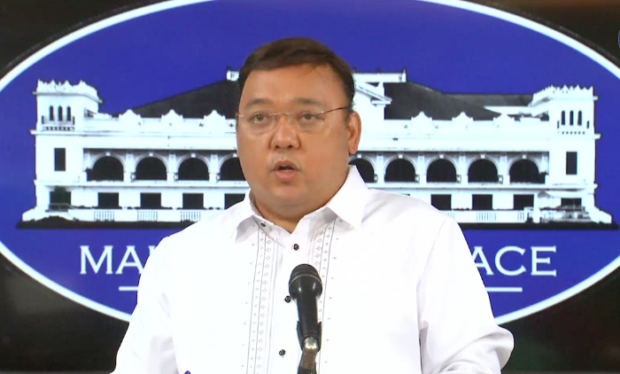MANILA, Philippines — Overseas Filipino workers (OFWs) got a reprieve from paying higher premiums for a state-mandated health insurance after President Rodrigo Duterte ordered Philippine Health Insurance Corp. (PhilHealth) not to compel them to make the contributions before they leave the country.
The increase in membership rates over the next five years covers not just migrant workers but all direct members of PhilHealth and is stipulated in the universal health care (UHC) program, according to the agency.
Malacañang on Monday said the President did not want to further burden the OFWs amid the novel coronavirus pandemic that threatens their jobs abroad.
“The President has issued a directive to PhilHealth to make the payment of premiums for OFWs on a voluntary basis,” said his spokesperson, Harry Roque, who noted that many of the workers had been repatriated and lost their jobs.
Duterte made the decision on Monday amid the backlash over a PhilHealth circular that required OFWs to pay premiums at higher rates.
The outrage over the circular spawned online petitions that collected some 300,000 signatures for its repeal.
Rate increase for all members
PhilHealth President and CEO Ricardo Morales maintained that Republic Act No. 11223, or the UHC Act, allowed the 0.25-percent increase in membership contributions this year to help roll out the landmark health measure.
“PhilHealth is just implementing what is stated under the law. The rate increase is not just for OFWs but for all direct members, those who are self-employed and paying their own premiums,” Morales said in a virtual briefing on Monday.
Under the UHC Act, PhilHealth premiums of direct contributors will increase by 0.5 percent annually until it reaches 5 percent by 2024. This year, the rate rose to 3 percent from 2.75 percent last year.
This means that from 2020 to 2024, a person earning at least P10,000 a month would see his annual premium go up from P3,600 to P6,000.
Each year, PhilHealth will also increase the monthly income cap, which in 2020 is P60,000. By 2024, the income ceiling will be P100,000. Anyone earning that much would need to shell out an annual premium of P60,000.
Direct contributors
The law defines direct contributors as those who “have the capacity to pay, are gainfully employed and are bound by an employer-employee relationship, or are self-earning, professional practitioners, migrant workers and their qualified dependents, and lifetime members.”
OFWs used to pay a fixed annual rate of P2,400.
In an advisory, the Philippine Overseas Employment Administration (POEA) said that since the passage of the UHC, its governing board “has not passed a resolution that authorizes the POEA to require OFWs to pay PhilHealth premiums in their application for the issuance of OECs.”
‘Robinhood configuration’
Last year, Morales appealed to those who could pay the premiums to continue remitting to PhilHealth since it was following UHC’s 65-35 “Robinhood configuration,” in which the direct contributor helps pay for the poor.
He said the additional funds to be collected would help ensure “better coverage and services” for all.
Based on PhilHealth data, Morales said the OFWs and their dependents in the country did not get the short end of the stick. Last year, the agency collected a little over P1 billion in premiums from OFWs who, in return, along with their dependents, received P1.7 billion in health-care benefits from PhilHealth.
In a press briefing, Roque said the Department of Health had also suspended an item in the UHC law’s implementing rules and regulations “that imposes higher contribution rates, while we have this COVID-19 crisis.”
The POEA and the Overseas Workers Welfare Administration will no longer require the payment of PhilHealth premiums for the issuance of documents like the overseas employment certificate, according to Roque.
Health bonds
On Monday, the Blas F. Ople Policy Center, an OFW rights advocacy group, urged lawmakers to pass a measure that would reimpose the previous annual fixed rate of P2,400 for OFWs.
Sen. Sonny Angara called on the government to look for other ways like health bonds to fund PhilHealth amid the COVID-19 crisis.
He said the timing of the premium increase was unfortunate since there was an economic crisis worldwide.
Waiving of interests, charges
Albay Rep. Joey Salceda called for the lowering of the OFWs’ mandatory contribution to PhilHealth and the waiving of interests and surcharges on late payment.
He said OFWs were uniquely burdened by COVID-19 as up to 420,000 of them could lose their jobs due to a slowdown in global trade following restrictions due to the pandemic.
Balanga Bishop Ruperto Santos also opposed the increase in the OFWs’ PhilHealth contributions.
PhilHealth spokesperson Shirley Domingo said the agency would explore the recommendations made by several OFWs during her talk with them on Sunday.
—WITH REPORTS FROM LEILA B. SALAVERRIA, DJ YAP AND TINA G. SANTOS
